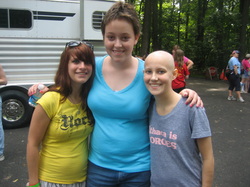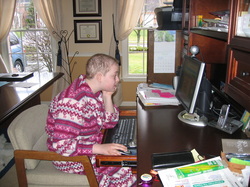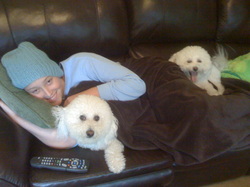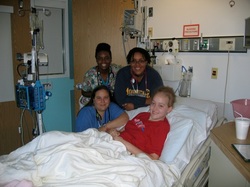
Being friends with teen cancer survivors had a unique advantage in that they were and still are able to give me advice and support, having finished their treatment and survived. Sites like Carepages and Caringbridge are great places to find other people going through the same challenges as you. Camps like Camp Sunrise are also great places to find people going through the same challenges as you, so I encourage you to find one in your area. Ally and Kyra have become two of my best friends since camp and we continue to have fun together and support each other.
While having friends who are survivors is important, being friends with people who are still on treatment is also crucial. Finding other teen patients at your hospital is a great way to build friendships because you are being treated at the same place by the same caregivers. Many hospitals have support groups especially for teens, but if your hospital doesn’t, then I definitely encourage you to start one yourself, especially if you have not met or become friends with many other teen cancer patients. When I was in treatment, there was not really a designated support group for teenagers, and I wish there had been. Discussions and activities in the only available support group were often targeted at the younger age groups.
Only now, with some of the teens I met at Camp Sunrise (the camp for kids/teens who have or have had cancer), am I helping to start a support group for teens. I am so excited about it because I know it will not only help me, but it will help others as well. These support groups are not necessarily group therapy, they are just a place where teens can get together and talk about anything from hospital food to school. I know, with the support group I am helping to start, my goal is to let everyone share their stories. There is something incredibly therapeutic about spending time complaining, laughing, joking, and crying, about stories of chemo, ports, spinal taps, radiation, doctors, allergic reactions, nurses, operations, challenges, school, friends, and the crazy life of a teen with cancer. Making new friends with other teens with cancer is just as important for you as keeping your other friends, in fact, it may be more important for the therapeutic benefits it provides as you endure cancer’s harsh treatment.



 RSS Feed
RSS Feed

